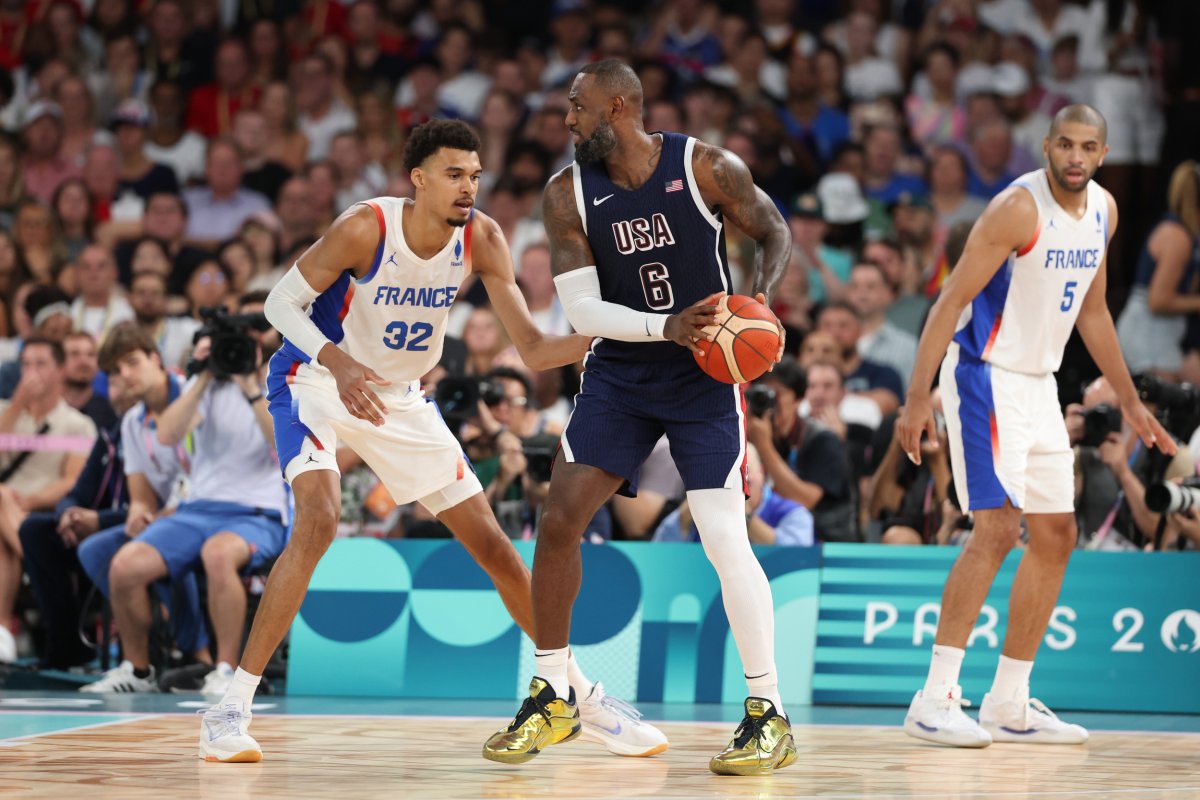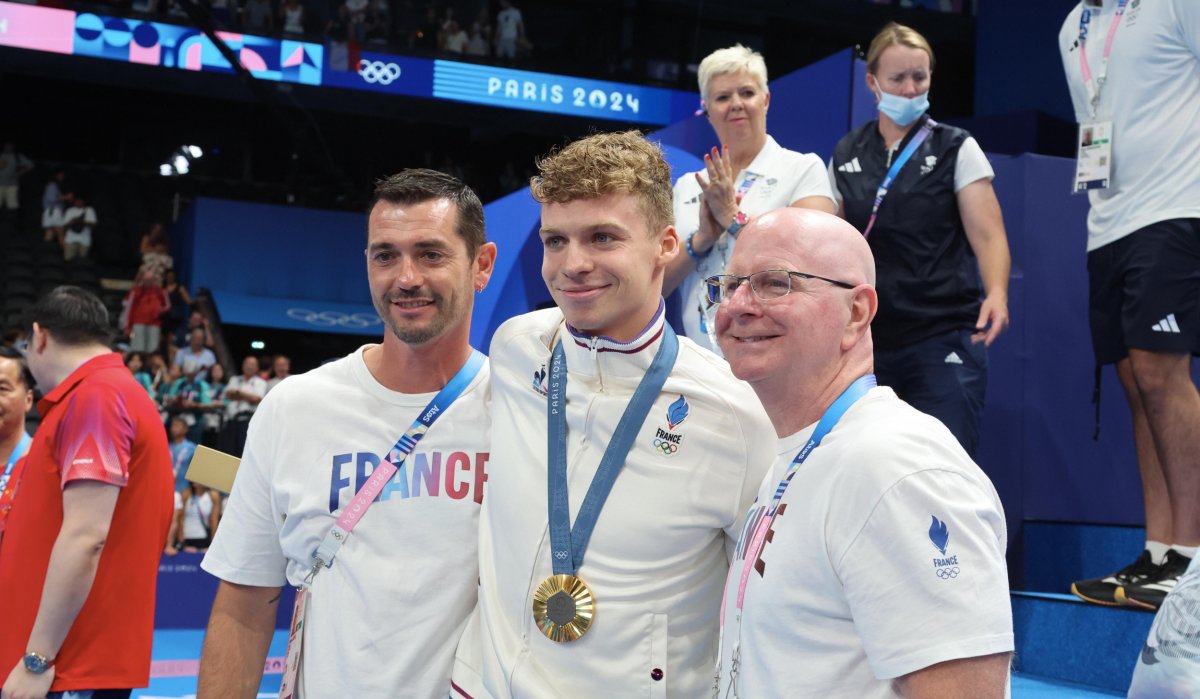While China proved yet again to be Team USA’s toughest gold-medal rival, United States competitors and teams faced another challenge with no signs of slowing down when it comes to the training of Olympic medalists—the National Collegiate Athletics Association (NCAA).
Heading into the last two days of competition at the 2024 Paris Olympics, NCAA athletes collected 60 total medals for countries other than the U.S., including 23 gold medals. Both of those tallies would be good enough for third among all countries.
At the end of Saturday’s events, China leads the gold medal count 39-38 over Team USA. The final 14 medals are up for grabs Sunday. The margin between the two countries also proved razor-thin in Tokyo in 2021 with the U.S. winning the gold tally, 39-38. Since 2000, China is the only country within 30 gold medals of Team USA, which leads during that stretch, 280-250, including in Paris.
On its website, the NCAA boasts of more than 1,000 former, incoming or current NCAA student-athletes competed in Paris this summer. Of those, almost 400 compete for Team USA, leaving numerous athletes with the chance to reach the Olympic podium for other countries.
This isn’t a new phenomenon. During the Tokyo Games, NCAA athletes won 71 medals for a country other than the U.S. From basketball to the backstroke, international athletes that train and compete on U.S. soil, including many professionally, are among Team USA’s toughest opposition on the globe’s largest sporting stage.
Meanwhile, China, America’s fiercest modern foe, operates a rigid regime where gold medals are the ultimate prize.
Only a major player in the Summer Olympics since the 2000 Sydney Games when China won the third-most gold medals for the first time, the communist country has locked in on dominating a handful of sports. In Paris, the Chinese won eight golds in diving, five apiece in shooting and table tennis and four in weightlifting.
For years, China has recruited athletes from a very young age into state-sponsored sports schools where they live and train together, reuniting with their families only a few times a year, with the goal of maximizing their development.

AFP/Getty Images
Susan Brownell, an anthropologist with the University of Missouri-St. Louis who specializes in Chinese sports, pointed out to Newsweek via email on Saturday that China is diversifying its sport system, with an increasing number of athletes first gaining outside experience before entering the Olympic circuit.
However, some sports, particularly table tennis and gymnastics, “benefit from recruiting very young kids into sports boarding schools, since those sports require starting at a very young age,” she said.
The Chinese, whose rise coincides with Russia’s demise in the Summer Games, claimed the most golds for the first and only time, thus far, when Beijing hosted in 2008.
While the gold medal count came down to the final day in Paris, Team USA ran away with the overall table for the seventh time in the last eight Summer Games. Americans have reached the podium 122 times this summer, with China well behind with 90 overall medals. By comparison, Great Britain’s 63 medals are good for third overall.
Matthew Robinson, a sports management professor at the University of Delaware who focuses on international sports development, said China’s Olympic strategy, while vastly different than the U.S., has been tantamount to its recent success.
“China is very strategic as well as being excellent in their culturally relevant sports,” Robinson told Newsweek via a phone call Saturday afternoon. “All medals are equal. A gold in canoe equals a gold in 100-meter sprint in terms of medal count.”
America’s international training boost—and sporting goodwill—was on full display on the basketball court and in the swimming pool.
In the lead-up to the tournament, the National Basketball Association (NBA) announced that a record 139 players with the NBA and Women’s National Basketball Association (WNBA) experience would be participating in the Olympic games.
On Thursday, Serbia’s men’s basketball team, led by MVP and former NBA champion Nikola Jokić and fellow NBA standout Bogdan Bogdanović, pushed LeBron James, Stephen Curry and co. to the brink of a semifinal upset before a spectacular comeback by Team USA, the ultimate gold-medal winner.
The top pick in the 2023 NBA draft, 7-foot-4 center Victor Wembanyama, led France to a silver medal after winning the NBA’s Rookie of the Year with the San Antonio Spurs. Zaccharie Risacher (Spain, Atlanta Hawks) and Alex Sarr (Australia, Washington Wizards) were the top two picks in the 2024 NBA draft.

AFP/Getty Images
Since allowing pro players to compete in the summer games in 1992, the American men’s basketball team has typically dominated against the international field. But when USA Basketball was famously ousted and only managed to take bronze in 2004, the entire program received an overhaul with the hiring of Jerry Colangelo as managing director and legendary Duke coach Mike Krzyzewski as head coach.
And while the U.S. has claimed gold each summer since the 2008 “Redeem Team,” the rest of the world continues to make strides as its top players compete in NBA arenas.
David Berri, a professor of economics at Southern Utah University, told Newsweek via email on Saturday that the billion-dollar business of sports is the greatest influence on the behavior of America’s institutions.
Berri noted that even the NCAA, which has always attempted to walk a fine line between amateurism and professionalism, has sold tickets to its events since the 1800s.
“Once you start selling tickets, you are operating a business. We need to start by noting the nature of the NCAA, NBA and WNBA. All three organizations are professional sports leagues. No one seems to be volunteering to train athletes from other nations to be nice. They appear to be doing this to make money. And therefore, it seems unlikely this is going to stop,” he said.
Berri continued: “The NBA generates $10 billion per year in revenue. And like the NBA did in its third decade, the WNBA doubled its revenue from $100 million to $200 million from 2019 to 2023. Not surprisingly, both the WNBA and NBA are searching the world for the very best talent they can find.”
Newsweek emailed USA Basketball and the NBA for comment for this story.

AFP/Getty Images
France’s Léon Marchand (four gold medals, one bronze) and Hungary’s Hubert Kós (one gold) are standout swimmers at Arizona State and University of Texas, respectively. Marchand and Kós are also the star pupils of renowned American coach Bob Bowman, who guided Michael Phelps during his historic run of 23 gold medals.
Canadian Summer McIntosh won three golds, and along with Marchand and Kós, are among a host of Olympic-caliber swimmers that train nearly year-round in the U.S. That gold-medal trio reportedly conducts altitude training at the U.S. Olympic Training Center in Colorado Springs. McIntosh, only 17, hasn’t made her collegiate declaration, but she currently studies and trains in Sarasota, Florida.
In addition, at least five other current or former American collegians earned swimming medals for countries other than the U.S in another growing trend. Swimcloud.com, which ranks college recruits based on their times, shows a brand-new crop of international swimmers with Olympic dreams landing on U.S. campuses this fall.
“The U.S. has always been open about sharing and university coaches look for the best talent, domestic or international” Robinson said. “In turn, those athletes push our athletes. We get better and they get better, in that sense.”
Newsweek emailed USA Swimming Friday for comment for this story.


